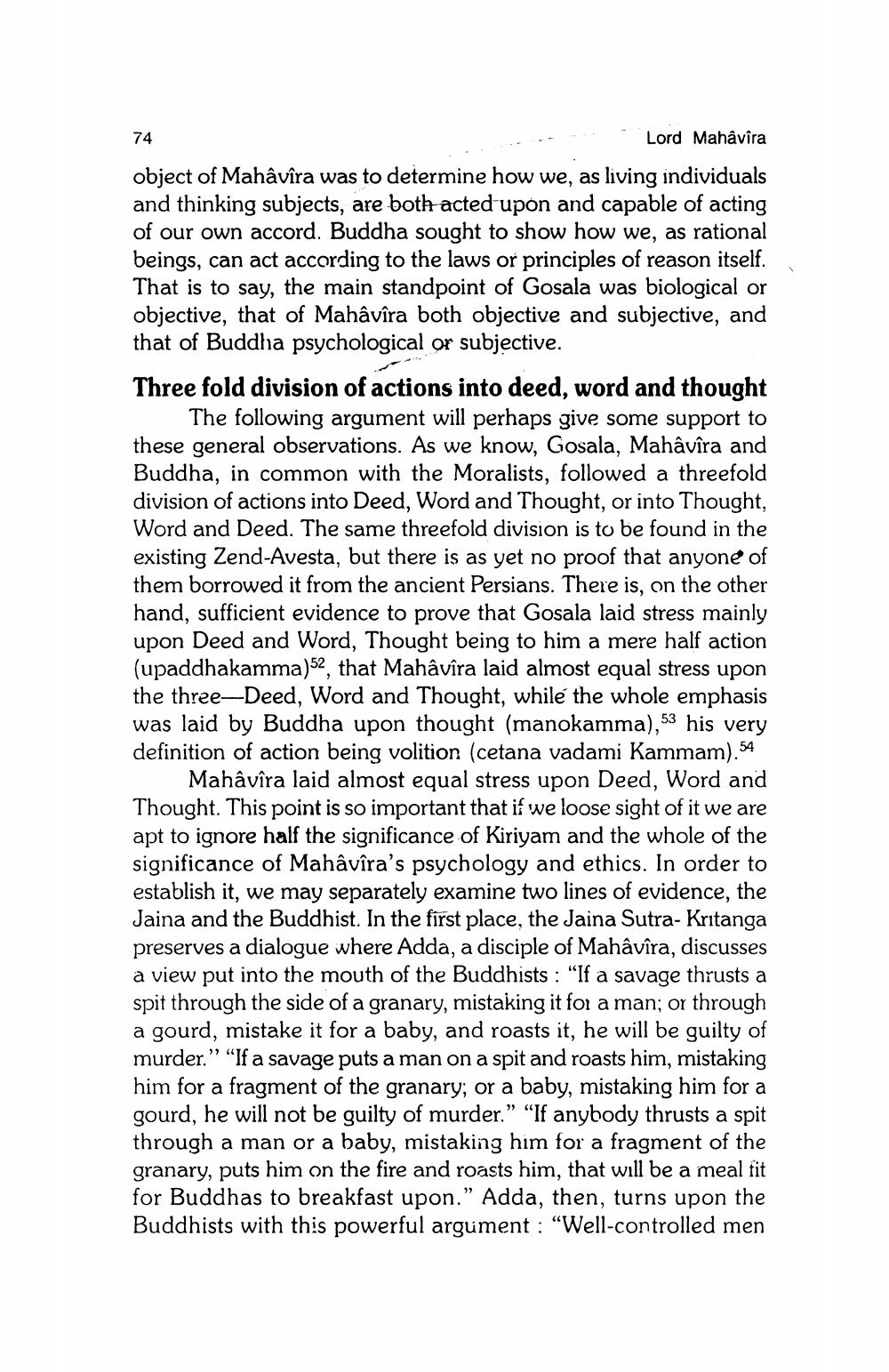________________
74
..
Lord Mahâvîra
object of Mahâvîra was to determine how we, as living individuals and thinking subjects, are both acted upon and capable of acting of our own accord. Buddha sought to show how we, as rational beings, can act according to the laws or principles of reason itself. That is to say, the main standpoint of Gosala was biological or objective, that of Mahâvîra both objective and subjective, and that of Buddha psychological or subjective. Three fold division of actions into deed, word and thought
The following argument will perhaps give some support to these general observations. As we know, Gosala, Mahâvîra and Buddha, in common with the Moralists, followed a threefold division of actions into Deed, Word and Thought, or into Thought, Word and Deed. The same threefold division is to be found in the existing Zend-Avesta, but there is as yet no proof that anyone of them borrowed it from the ancient Persians. There is, on the other hand, sufficient evidence to prove that Gosala laid stress mainly upon Deed and Word, Thought being to him a mere half action (upaddhakamma)52, that Mahâvîra laid almost equal stress upon the three-Deed, Word and Thought, while the whole emphasis was laid by Buddha upon thought (manokamma),53 his very definition of action being volition (cetana vadami Kammam).54
Mahâvîra laid almost equal stress upon Deed, Word and Thought. This point is so important that if we loose sight of it we are apt to ignore half the significance of Kiriyam and the whole of the significance of Mahâvîra's psychology and ethics. In order to establish it, we may separately examine two lines of evidence, the Jaina and the Buddhist. In the first place, the Jaina Sutra- Kritanga preserves a dialogue where Adda, a disciple of Mahâvîra, discusses a view put into the mouth of the Buddhists : "If a savage thrusts a spit through the side of a granary, mistaking it for a man; or through a gourd, mistake it for a baby, and roasts it, he will be guilty of murder." "If a savage puts a man on a spit and roasts him, mistaking him for a fragment of the granary; or a baby, mistaking him for a gourd, he will not be guilty of murder.” "If anybody thrusts a spit through a man or a baby, mistaking him for a fragment of the granary, puts him on the fire and roasts him, that will be a meal fit for Buddhas to breakfast upon." Adda, then, turns upon the Buddhists with this powerful argument: "Well-controlled men




